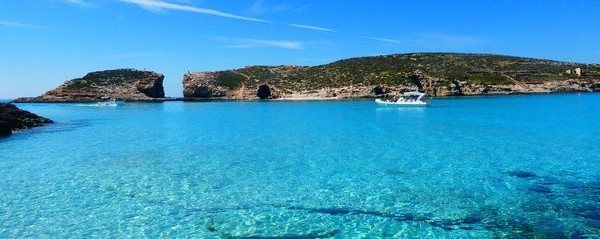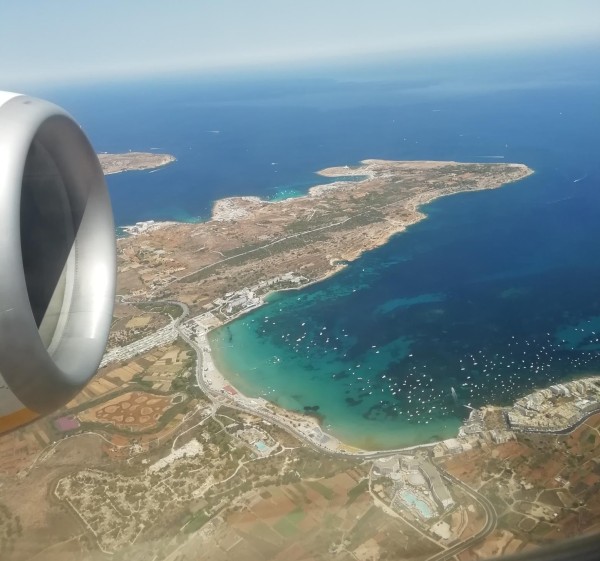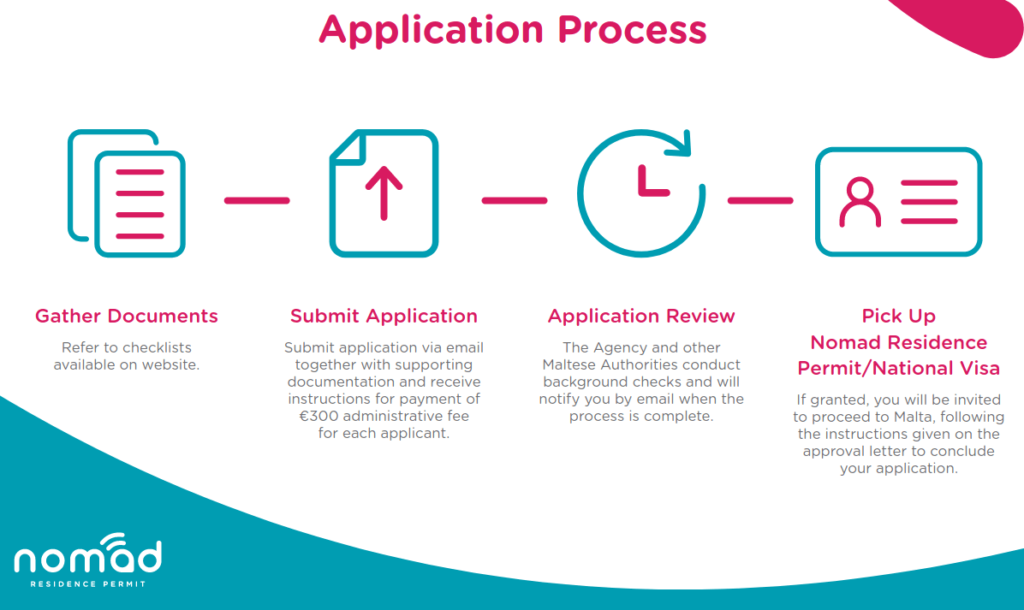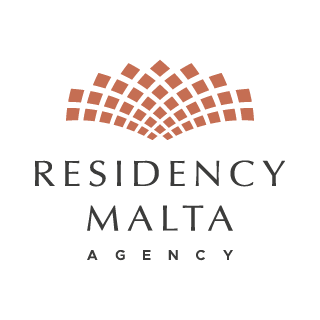Nomad Residence Permit – Tax-Free Working in Malta for Non-EU Citizens
Malta, the hotspot for digital nomads in Europe and the European Union, introduced the Nomad Residence Permit in June 2021. Would you like to take advantage of the tax-incentivised residence permit for non-EU citizens on Malta’s beaches? We describe how you can obtain a residence permit as an employee, freelancer, digital nomad, or simply: as an expat. A work permit and the possibility to extend the Schengen visa beyond the year.
Nomad Residency Permit Malta – Brief Answer
Who can apply?
- All non-EU citizens worldwide
Requirements?
- Digital working for companies outside Malta (digital nomads)
- As an employee for an employer registered abroad
- Freelance or consultancy services for clients with a permanent establishment abroad
- Shareholder or partner of a foreign company
- Minimum income of 32,400 euros per year
What do you need?
- Valid travel document
- Health insurance
- Buying or renting property in Malta
- Background check
Who is Eligible for the Malta Nomad Residence Permit?
This programme of the Maltese government is aimed exclusively at non-EU citizens. Beneficiaries are employees, freelancers and digital nomads. Any non-EU expat with a digital job can apply for a Nomad Residence Permit.
A mandatory requirement: Your client or employer is registered outside Malta and their business premises are located abroad. Your monthly gross income must be at least 2,700 euros (32,400 Euro per year). If you bring family members with you, the required minimum income is increased by 20% of the average Maltese salary per family member. This rule does not apply to dependent family members.
Due to the official English language, citizens of the non-EU countries Great Britain and the USA are particularly interested in Malta’s Nomad Residence Permit Programme.
What are the Typical Professions for Digital Nomads?
At least 44 freelance and entrepreneurial activities are feasible. Don’t have an idea? Sorted alphabetically:
- Amazon merchant
- Affiliate, Blogger
- Accountant
- Digital marketer, marketing consultant, SEO, content manager, e-commerce manager
- Gamblers
- IT services such as app developers, graphic design, programming, development, web design
- Online coach, personality coach, yoga teacher
- Travel guide, city guide
- Writing professions such as author, content writer, copywriter,
- Ghostwriter and editor
- Social media manager
- Language teacher
- Sports coach for surfing
- Translations
- Management consultancy
- Video producer
- Virtual assistance
In Malta, you can set up your company in just a few days for as little as 0 euros.

Programs Malta Offers for Digital Nomads and Remote Workers from Non-EU Countries
In addition to a maximum six-month Malta visa, Malta offers a one-year residence permit with the option of extension. The national visa, valid between 91 and 180 days, is suitable for applicants who do not intend to stay in Malta longer. For a stay of 181 days or more, you receive the one-year Nomad Residence Permit with an extension option.
What is the Cost of Applying for Malta's Nomad Residency Permit?
- Applicant (Form 1) €300.00
- Per family member (Form 2) €300.00
- Identity Malta charges a processing fee (Agency Fee) of €27.50 per person
For extending the national visa for another year, Malta charges a processing fee of €300.00 per person. For the reissue, for instance, after theft or loss, the processing fee of €27.50 (Agency Fee) is required.
Can I Travel to Other European Countries with the National Visa?
The national visa from Malta allows you to travel and stay in a European country of the EU for a maximum of 90 days within a 180-day period. If this country is part of the Schengen Agreement, then border controls do not apply to you.
Schengen is a municipality in the Grand Duchy of Luxembourg. On June 14, 1985, five EU member states signed the Schengen Agreement on the ship MS Marie-Astrid.
Can I Travel to Several Member Countries with the Same National Visa or Schengen Visa?
World of Malta Insider Tip: Travelling in the Schengen area without border control for 90 days
Schengen is the association of countries in the European Union. In the largest travel and movement-free area in the world, you can travel without a passport or border controls.
You can use the Schengen visa for stays of up to 90 days when traveling abroad for tourism or business. The Schengen visa is the most common visa in the EU.
Deviating police checks and temporary border controls
Anyone in the Schengen area may cross internal borders without border controls. National authorities are authorised to carry out police checks at internal borders and border areas, provided these are not border checks. For example, the Schengen Borders Code stipulates that
- Police checks that are not aimed at border controls
- are based on general police information and experience
- differ from systematic checks on persons at external borders
- on the basis of random checks
- identity checks
Yes, with the national visa from Malta and your passport, you can move freely and without additional documents within the Schengen area. However, you must not exceed the 90 days within a 180-day period.
Which Countries of the European Union (EU) Do Not Belong to the Schengen Area?
Countries not part of the Schengen area include Ireland, Bulgaria, Croatia, Romania, and Cyprus. Also, some territories of EU countries are excluded from the benefit. These include, for example, the Dutch Curaçao, French Guiana, or the British Gibraltar in Spain. Great Britain isn’t included in the Schengen area after Brexit.
How Are Participants of the Nomad Residence Permit Tax-Advantaged?
Malta assumes that you are already taxable in your country. Therefore, Malta waives the collection of income tax for the Nomad Residence Permit.
For the first year, digital nomads do not pay tax in Malta if you can prove that you already pay tax on this income in another country. From the second year onwards, you either retain taxation in another country or pay at least 10 percent in Malta.
Important:
This rule only applies to income from Remote.
The minimum tax rate abroad must be at least 10 percent.

Reasons for the Nomad Residence Permit
Up to 2.8 million sun vacationers visit affordable Malta annually, providing an important contribution to the local economy. However, these visitor flows are a significant burden on the ecology and environment. Therefore, the government is eager to offer well-earning non-EU expats an opportunity to live in Malta with tax advantages. Thus, Malta benefits from the digital nomads living here, as they rent apartments, rooms, offices, co-working spaces, or hotel rooms. They use public transportation, explore cultural attractions, engage in water sports, and dine out.
It is estimated that a digitally working employee and freelance worker creates the same contribution to Malta’s economy as 70 tourists. Malta hopes to attract between 40,000 and 80,000 digital nomads and remote workers, who can achieve the same economic growth as 2.8 million vacationers. Therefore, Malta sets a minimum income for the Nomad Residence Permit and additionally exempts you from income tax.
Step by Step to the Nomad Residence Permit
1. Step: Documents for the Application
Residency Malta requires up to 18 documents and forms for your residence permit. We have listed all the required documents in our checklist. You do not need to visit an embassy or consulate. All forms are available online. The Residency Malta form is available online for you.
2. Step: Apply for a residence permit online
You submit the application documents and supporting documents for the Nomad Residence Permit online. Malta would like you to submit a letter of intent in which you explain your reasons and length of stay for the residence permit.
3. Step: Pay the invoice
You will receive an invoice for 300 euros and an agency fee of 27.50 euros as confirmation of receipt. If you bring family members with you, they will also cost 300 euros each plus agency fee. Once the money has been received, Residency Malta will begin the processing and due diligence process.
4. Step: Due diligence check
The Maltese authorities will carry out a due diligence check. You will be carefully analysed for your economic, legal, tax and financial circumstances. The Schengen countries always check your visa history and CV. This is because no applicant should pose a risk to health or safety.
5. Step: Accept Malta's invitation
Once your application has been approved, you will receive an invitation to Malta to complete the Nomad Residence Permit. To enter the country, you will receive an Initial National Visa with a validity of 180 days. Please check the travel advice and travel warning regarding Covid-19 before you book your trip.

How Long Does the Application Process for the Nomad Residence Permit Take?
The processing of an application takes an estimated up to 60 days after receiving all required documents, application forms, and payment of the invoice.
Your Checklist of the Most Important Documents Required for the Nomad Residence Permit
Forms Personal Details
- Application form Form N1
- Family members Form N2
- Privacy statement Form N4 (General Data Protection Regulation EU/2016/679 – GDPR)
- Copy of a valid international passport
- Health declaration
- Letter of intent about your motives (Letter of Intent)
- Europass CV / Resume
Proof of Your Sustainable Income
Depending on your activity or status, you may need some proofs. These can be:
- Employment contract
- Service contract
- Proof of being a shareholder in a foreign company
- Bank statement in your name with income for the last 3 months
Other Documents and Proofs
- Lease or purchase contract for a residence in Malta
- Health insurance
If you are an EU citizen and find the story about digital nomads super exciting? The Thrilling Lifestyle? Then check out our page on Digital Nomads. There, we have more information and tips on job search, accommodation, co-working space, and the technical conditions in Malta. 320 sunny days await you.
Important Contact Information for Nomad Residence Permit Application
Residency Malta Agency
Business Centre, Level 2,
Mdina Road,
Qormi, QRM 9010, Malta
Email: nomad.residencymalta@gov.mt
Internet: https://nomad.residencymalta.gov.mt
FAQ – You Have Questions About the Nomad Residency Permit? We Provide the Answers
Can you work for a Maltese company with a Schengen visa on Malta?
No, the Schengen visa does not allow you to work in any of the 22 Schengen countries. To carry out self-employed or employed work in Malta, you need a residence permit or work visa. Malta has developed the Nomad Residency Permit for this purpose.
Must the country be left after the validity period expires?
No, you can apply for an extension of the residence permit for digital nomads, employees or freelancers. If you continue to fulfil the requirements for the Nomad Residency Permit, Residency Malta can extend your stay for a further year. If you do not apply for an extension, you must leave Malta when your Nomad Residency Permit expires.
How much does the Nomad Residence Permit cost in 2024?
The Nomad Residence Permit costs 300 euros per person entering the country plus an application fee of 27.50 euros. The extension costs a processing fee of 300 euros.
For which industries is the Nomad Residency Permit particularly suitable?
According to Charles Mizzi, Managing Director of Residency Malta, the most popular sectors are IT, management and marketing. The Nomad Residency Permit is suitable for all industries that offer services to clients abroad or enable digital (remote) working for their employees,
How do you find more clients for the minimum income as a digital nomad?
According to our information on digital nomads in Malta, we have listed some international addresses for digital jobs.
How long is the residence permit valid?
The residence permit is valid for a maximum of one year. You can apply for an extension of your Nomad Residency Permit.
Can the temporary residence permit be converted into a permanent one?
Non-EU citizens can obtain a temporary residence permit, which can lead to a permanent residence permit after several years. A period of residence of at least five years is usual.
Which family members can you include in your application?
Non-EU citizens can obtain a temporary residence permit, which can lead to a permanent residence permit after several years. A period of residence of at least five years is usual.
Where are air-conditioned workplaces or co-working spaces for independent online work?
Air-conditioned workplaces and co-working spaces are available in Malta. We conducted an interview with Operations Manager Andrew from BUSINESSLABS. The BUSINESSLABS co-working space is often booked by digital nomads.
What is the difference between a tourist visa and the Nomad Residence Permit?
Remote working or working as a freelancer is not permitted with a tourist visa. The length of stay is limited to 90 days. Only a business visa permits business activities in the Schengen area. The Nomad Residence Permit allows you to work in Malta for up to one year plus the option to extend.
Which government website provides details for the nomad residency permit?
The Residency Malta Agency has published 14 pages of FAQs: Nomad Residence Permit Frequently Asked Questions
Lorem ipsum dolor sit amet, consectetur adipiscing elit. Ut elit tellus, luctus nec ullamcorper mattis, pulvinar dapibus leo.
Fehlt Ihnen eine Frage zu Nomad Residency Permit Malta?
Nehmen Sie mit uns Kontakt auf. Wir sind sicher, wir haben die passende Antwort.
Vielen Dank, dass Sie uns Ihre Zeit geschenkt haben.
World of Malta ist ein kostenfreies Projekt von Niclas und Ralf. Ehrlich recherchiert und kostenfrei für unsere Leser. Möchten Sie uns unterstützen? Dann freuen wir uns, wenn Sie uns auf einen Espresso spendieren.


